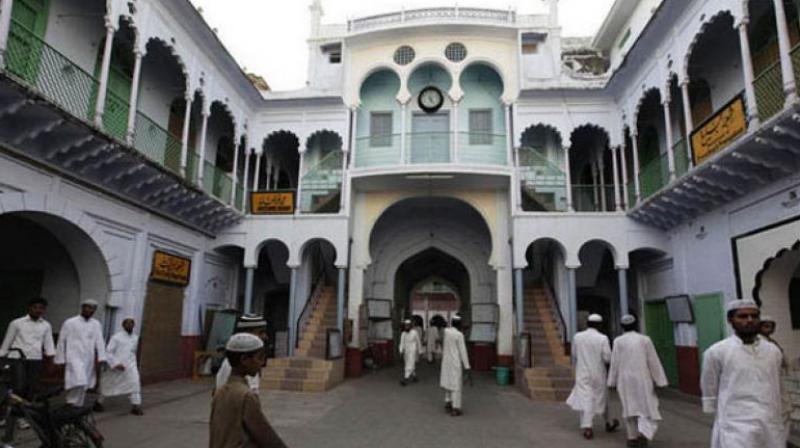Shariat courts expansion criticised

Hyderabad: The proposed move of the All India Muslim Personal Law Board (AIMPLB) to expand Shariat courts across the country has been criticised even by Muslim intellectuals who say that Shariat courts have no legal sanctity.
The AIMPLB will discuss the proposal during a meeting of its members on July 15 in New Delhi. It claims that since 1993, the board has been setting up Dar-ul-Qaza (Shariat courts) to resolve marital disputes and other issues before going to other courts.
Abdul Muqeeth Qureshi, senior lawyer of the Hyderabad High Court is of the opinion that establishment of courts religion-wise is against the Constitution of this country and it is nothing but running a parallel judiciary.
He says that the Supreme Court had categorically held that the orders of Shariat Courts and fatwas issued by Muslim clerics or Muslim religious institutions are not binding on the Indian judiciary.
He said that Muslims in this country are following the law of the land which is bound by the Indian Constitution. He felt that if at all the Board desires to set up Shariat courts it has to approach the Centre and the state governments concerned to get recognition and be brought under the purview of the legal para-meters so that the orders passed by such courts would have some sanctity.
He made it clear that the Constitution of India does not allow any religion to having its own judicial system in this country.Sheikh Abdur Raheem Khurram Jamai, Muslim scholar of Jamiat Ahle Hadees said that Shariat is applicable only in the Islamic States. Moulana Ilyas Shamsi, Khatib of Green Mosque at Sultan Bazar said that the Shariat courts are arbitration or counselling centres to resolve matrimonial and family disputes. He said the Wakf Board itself has not endorsed divorce orders issued by Shariat courts.
He said that the Wakf Board issues the divorce certificate only when the couple appears before it and makes a statement that the divorce is with mutual consent. Mr Jamai explained that the Shariat courts are an option for Muslims who want to resolve matrimonial or property disputes within the community as per the Shariat and these courts have no jurisdiction to deal with criminal matters or bodily offences.
Dr Asma Zehra, chief organiser, women's wing of AIMPLB said the services of Shariat courts are limited to marriage, divorce, maintenance and custody of children, and they are more like arbitration centres helping the poor class of society who cannot afford the courts. She said there is no compulsion on persons approaching the Dar-ul-Qaza to abide by the decision and they are only advised on the correct way of proceeding according to Shariat and they are helpful to women.
Moulana Ilyas Shamsi said that most Shariat courts support women and one of the Shariat court organisers in the city is facing court cases for supporting women while resolving matrimonial disputes.

